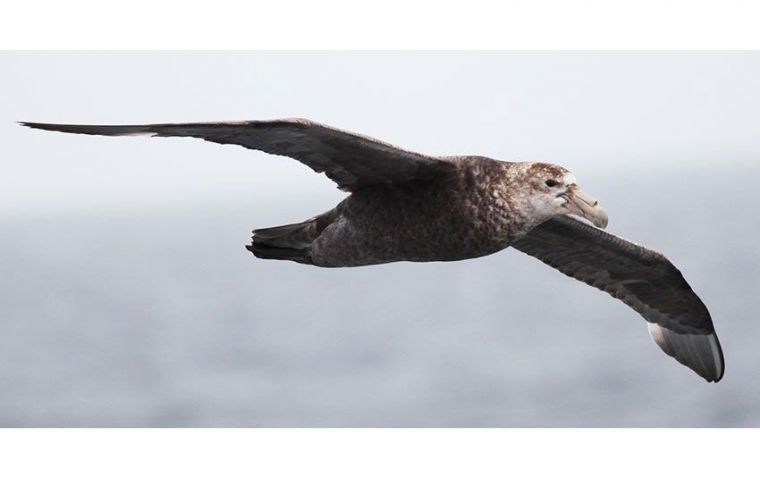MercoPress. South Atlantic News Agency
Survival of Gough Island seabirds threatened by giant mice
 The Atlantic petrel is among the species under threat from the larger-than-usual mice
The Atlantic petrel is among the species under threat from the larger-than-usual mice The already endangered Tristan albatross and other seabird species are under threat from a particular breed of mice in Gough Island in the South Atlantic ocean, The Royal Society for the Protection of Birds warned Monday.Other species endangered by the mice include the Gough bunting and Atlantic petrel, the RSPB said.
The rodents have proliferated on the uninhabited British oversea territory since arriving in the 19th century when they were brought in by European sailors and are now killing two million birds every year, the charity organisation explained.
The predatory mice have evolved to become “two or three times larger” than the average house mouse and they attack in groups, eating away at the flesh of chicks which can suffer for days before the open wounds lead to their deaths, the RSPB said.
According to Alex Bond from London's Natural History Museum, “we knew there were large numbers of chicks and eggs being beaten each year but the actual number being taken by the mice is just staggering.”
Gough Island is part of the same territory as Tristan da Cunha and Saint Helena. The latter gained worldwde notoriety for being the place where Napoleon was exiled and died in 1821.
The RSPB and Tristan da Cunha government are teaming up with international partners to eradicate mice from Gough Island in 2020, using two helicopters laden with poisonous pellets.
“Restoring the island to a more natural state will prevent the deaths of millions of seabirds,” said John Kelly, RSPB manager for the Gough Island mouse eradication programme.
The RSPB said the operation would be “logistically complex” because staff and equipment would have to be shipped to the island, located 1,550 miles (2,800 kilometres from South Africa.
The project is inspired by a successful eradication programme on the British overseas territory of South Georgia, where rats were introduced by sealing and whaling ships in the 19th century.




Top Comments
Disclaimer & comment rulesCommenting for this story is now closed.
If you have a Facebook account, become a fan and comment on our Facebook Page!